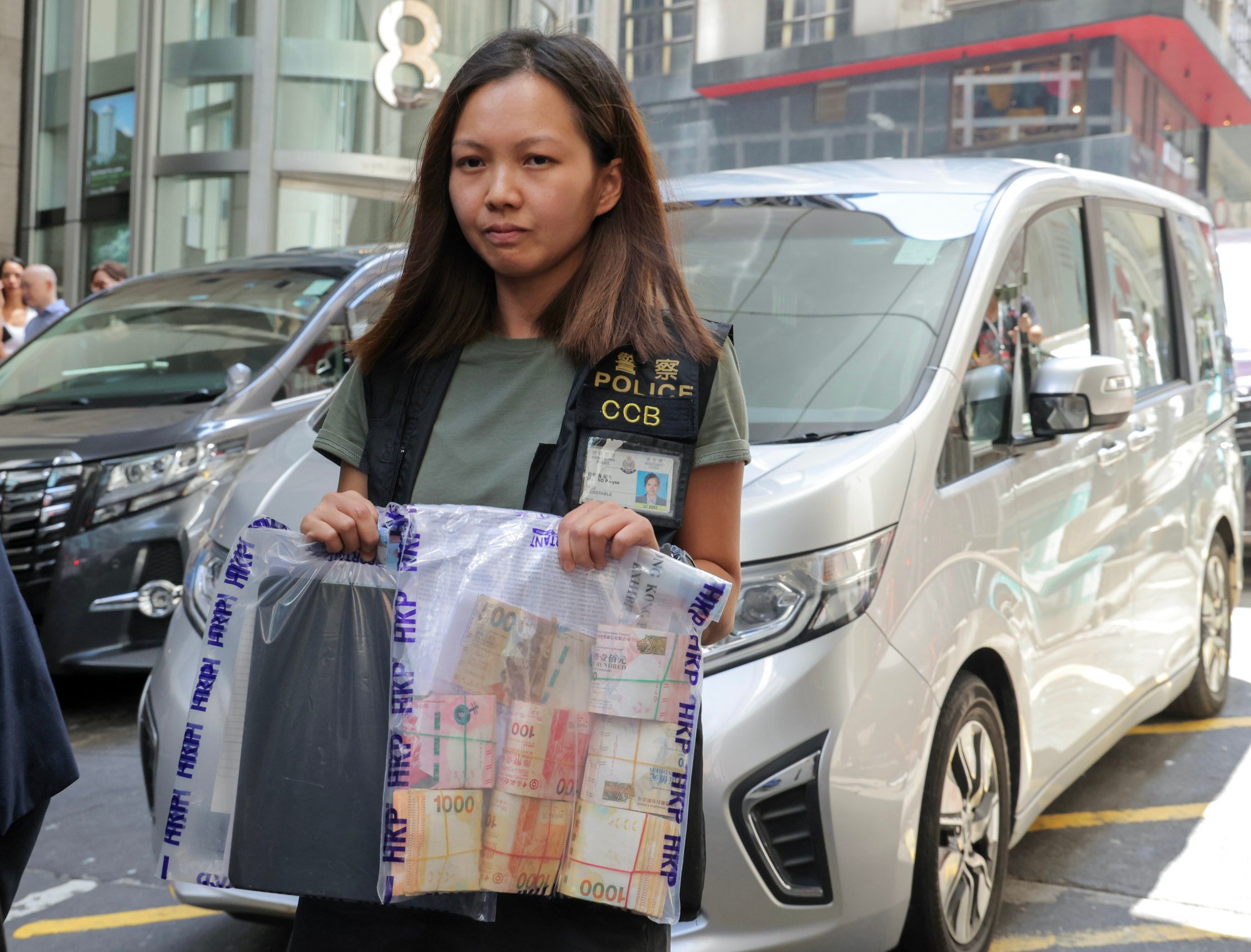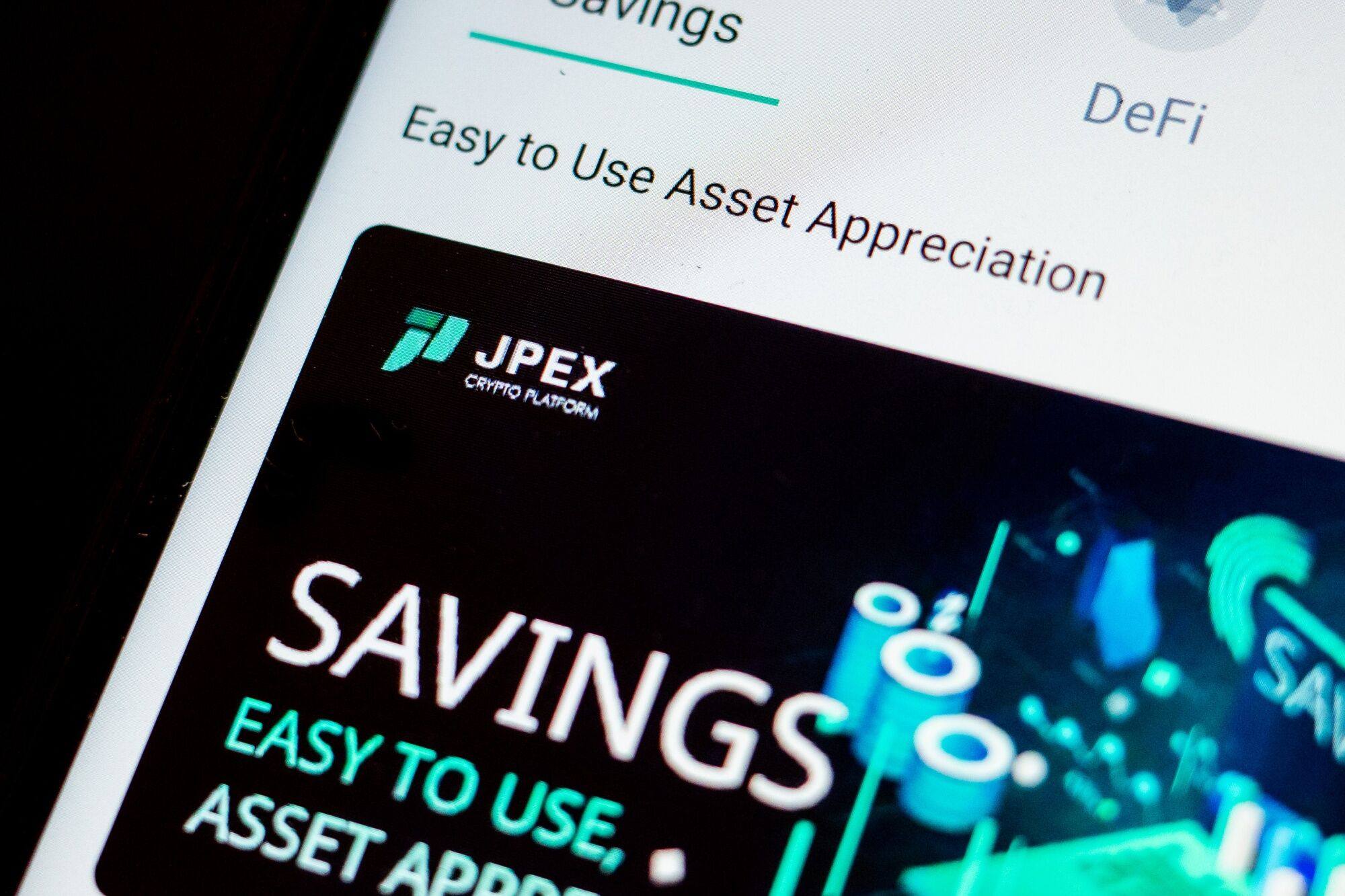
JPEX snares 1,641 investors with HK$1.2 billion of funds in Hong Kong’s largest fraud case in history
- Police received complaints from 1,641 investors as of Monday evening, involving nearly HK$1.2 billion in assets
- Eight people have been arrested in connection with the investigations into alleged fraud by JPEX
The financial toll in Hong Kong’s cryptocurrency scandal has risen to HK$1.2 billion (US$154 million) involving more than 1,600 investors, making it the single largest financial fraud case in the city’s history and exposing risks faced by local retail investors amid a government push to transform the global financial centre into a virtual asset hub.
Police received complaints from 1,641 investors as of 10.30pm on Monday, involving HK$1.19 billion in assets, including HK$40 million from the biggest victim, the Hong Kong commercial crime bureau’s acting chief inspector Mak Wai-kwong said at a joint press conference with the city’s securities watchdog agency on Tuesday.
Police arrested eight people in connection with investigations into alleged fraud at JPEX, Mak said. Bank accounts with HK$15 million were frozen, and three properties valued at HK$44 million were seized, he said.
The amount of losses and the number of victims were “astonishing”, and the case involved mostly “inexperienced” cryptocurrency investors who had no understanding of the products they were investing in, the bureau’s senior superintendent Kung Hing-fun said. Investors fell for JPEX’s promises of high yields even though the stories were “too good to be true”, she said.

The company actively promoted its products to the Hong Kong public through social media influencers and key opinion leaders, who incorrectly suggested that JPEX had applied for a cryptocurrency trading platform licence in the city, the SFC said.
The company had never made contact with the regulator before its warning last week, the commission’s director of licensing and head of fintech unit Elizabeth Wong said on Tuesday.
JPEX, established in 2021, advertised extensively in some of Hong Kong’s busiest hubs. The company spent HK$40 million on advertising, including in the city’s subway stations and on buses and billboards, JPEX said in a press release in February.
FTX remnants remind Hong Kong of the bullet it dodged
The company also paid US$70,000 to become a platinum sponsor of this year’s Token2049 in Singapore, one of the world’s largest cryptocurrency conferences.
The debacle highlights growing risks in the Web3 space, where event organisers such as Token2049 are facing criticism for accepting JPEX as a major sponsor, said Brian Tang, founding executive director of the Law, Innovation, Technology and Entrepreneurship Lab at the University of Hong Kong’s Faculty of Law.
“With more industry events such as Hong Kong FinTech Week coming up, the need to conduct additional due diligence on potential sponsors from the Web3 sector may well be on the minds of event organisers, especially if [the events are] government-supported,” Tang said.
Hong Kong recently started to regulate the volatile cryptocurrency sector through a mandatory licensing regime for centralised exchanges, as it seeks to safely develop its cryptocurrency industry and become a global hub for the sector.
A new regulatory framework that came into effect in June gives a one-year grace period to exchanges that already had a large presence in the city to make changes to comply with the rules and apply for a licence to legally offer their services to local retail investors.

The SFC said it has ramped up investor education efforts over the years in the face of growing risks in the sector. Since it first issued an alert about JPEX in July 2022, the regulator has issued nine warnings through its Investor and Financial Education Council, reminding the public to be mindful of risks involved in investing with unregulated or overseas cryptocurrency exchanges.
When asked whether the SFC should offer more transparency on the licensing statuses of companies, Wong said the commission cannot publish a list of companies that have applied for licences because that would create a “false sense of security”, leading people to believe that all those firms were already fully compliant with the local regime.
The regulator also cannot disclose how many companies have applied for a licence or were denied one, Wong said.
Crypto exchanges undeterred by high costs of Hong Kong’s new rules now in effect
Hong Kong’s regulatory clampdown on JPEX, which is among the city’s most high-profile law enforcement actions in the cryptocurrency sector, may prove positive for licensed firms, according to a research note by Daiwa Capital Markets analysts Steven Nie and Carlton Lai.
“It demonstrates that the regulators will take fierce action towards illegal players with no hesitation, especially those actively promoting to the Hong Kong public,” they wrote.
Police said on Tuesday that they had not ruled out more arrests as their investigation continued. If someone overseas was found to have committed crimes in Hong Kong, the force would extradite them back to Hong Kong, said Lee Mo-yin, superintendent at the Commercial Crime Bureau.

